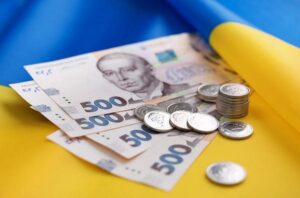
Canadian Prime Minister Mark Carney announced the dissolution of parliament on Sunday and new elections on April 28.
“I have just asked the Governor General to dissolve parliament and call a federal election on April 28,” he wrote on social media site X.
“We must build the strongest economy in the G7. We must deal with President Trump’s tariffs. Canadians deserve a choice about who should lead these efforts for our country,” the prime minister emphasized.
Earlier, Experts Club and Maksim Urakin released a video analysis on the most important elections in the world in 2025 – https://youtu.be/u1NMbFCCRx0?si=AOtHGDT1kGNdZd2g

Greenland ‘s pro-independence supporters have won the local parliamentary elections held the day before, Danish Radio reported on Tuesday.
With 100% of the votes counted, the Demokraatit (Democrats) party became the largest party in the 31-seat parliament, winning ten seats. The party adheres to a liberal ideology and advocates gradual independence. The second place was taken by the Nalerak (“Aspiration”) party, which also advocates the island’s independence. It will be represented in the local parliament by eight deputies.
The left-wing socialist party Inuit Ataqvatigiit (Eskimo Union), which was in power in Greenland before the election, was defeated, receiving only seven seats. Their partners from the Social Democratic Party “Siumut” (“Forward”) will be represented in the new parliament of Greenland by four deputies.
Two more seats were won by representatives of the liberal conservatives from the Atassut (“Solidarity”) party.
Voter turnout in the elections was 70.9%.
Meanwhile, although the Democrats received the largest representation in the new parliament of Greenland, they failed to gain a parliamentary majority of 16 seats, so they will have to start coalition negotiations.
Earlier, the Experts Club think tank and Maksim Urakin released a video analysis on the most important elections in the world in 2025 – https://youtu.be/u1NMbFCCRx0?si=AOtHGDT1kGNdZd2g

Polling stations have opened in Greenland, where elections to the local parliament are taking place on Tuesday, the Associated Press reports. Approximately 41 thousand residents of the island are eligible to vote.
The voters will have to choose from several parties, the favorites of which are two – the left-wing socialist Inuit Atakatigiiit (Eskimo Union), which is currently in power, and the social democratic Siumut (Forward).
In addition to them, representatives of the liberal Demokraatit (“Democrats”) party, the centrist Nalerak (“Aspiration”) party, which supports the island’s independence, and the liberal conservatives from the Atassut (“Solidarity”) party are competing for seats in the local parliament.
According to the BBC, a coalition of the Inuit Atakatigiit and Siumut parties currently controls the majority in parliament – 21 out of 31 seats. Both are in favor of independence, but the largest Inuit Atakatigiiit is in no hurry to hold a referendum, while Siumut promises to hold one in the next four years.
The announcement of the initial election results will begin immediately after the polls close, but the situation may be complicated by weather conditions, as a large part of the island is located in the Arctic zone. The time of the announcement of the final election results will also depend on this.
Observers note that the results of these elections should also reveal which way the island’s residents prefer: to remain a self-governing territory of Denmark, to choose a direction towards independence, or to listen to the statements of US President Donald Trump, who suggested that the Danish authorities buy Greenland.
The results of recent pre-election polls conducted by the Verian research company and regional media show that 85% of voters oppose becoming part of the United States, 6% are in favor, and 9% are undecided.
In addition, 60% of respondents are in favor of Greenland’s possible accession to the EU; 40% share the opposite opinion. The same results were shown in the 2021 survey. However, compared to 2021, the percentage of those who support parties that advocate independence from Denmark has now decreased from 80% to 69%.
Earlier, the Experts Club think tank and Maksim Urakin released a video analysis on the most important elections in the world in 2025 – https://youtu.be/u1NMbFCCRx0?si=AOtHGDT1kGNdZd2g

Prime Minister Denys Shmyhal believes that the state budget for 2025 adopted by the Verkhovna Rada clearly defines priorities in the context of limited resources.
“Given the limited resources, this budget clearly defines priorities. Defense, security, support for people, development and restoration of the country. This is all that makes us stronger and leads to victory,” Shmyhal wrote on his telegram channel after the Verkhovna Rada adopted the budget in the second reading and in general.
According to the Prime Minister, all taxes of citizens and businesses next year will be directed to the defense and security of the country.
“The total resource allocated to the security and defense sector will amount to UAH 2.23 trillion. Record funds will be allocated for the production and purchase of weapons. UAH 739 billion is provided for this purpose. There will be more funding for the modernization of our defense industry, as well as for the purchase of drones,” he said.
Shmyhal noted that the second priority of the budget is to support citizens, in particular, almost UAH 421 billion is provided for social assistance programs.
“Expenditures on education will amount to about UAH 199 billion, and on healthcare – UAH 217 billion. Important modernization and development projects are planned in both regions. UAH 10.7 billion is allocated to upgrade medical facilities, purchase modern equipment, and create rehabilitation centers. An additional UAH 17.5 billion has been allocated for the modernization of educational institutions and the construction of shelters,” he added.
Among other things, Shmyhal noted that in 2025 the resources of local budgets will increase by 15%.

The Committee on Legal Policy recommends that the Verkhovna Rada adopt the draft law (No. 9235) on certain issues of disclosure of banking secrecy and measures to establish custody of the property of a missing person, the press service of the Ukrainian parliament’s apparatus reports.
The draft law proposes to amend the Civil Code and the laws “On Notaries”, “On Banks and Banking” and “On the Legal Status of Persons Missing in Special Circumstances”.
The draft law, in particular, defines the procedure for notaries to establish guardianship over the property of an individual who has been declared missing or a person who has gone missing under special circumstances. The draft law expands the list of persons to whom banks may disclose information constituting bank secrecy. In particular, it provides for its disclosure at the request of notaries to perform a notarial act to take measures to establish guardianship over the property of an individual who has been declared missing or a person who has gone missing under special circumstances.
The adoption of the draft law will allow family members of an individual who has been declared missing or missing under special circumstances to receive a notarized certificate of guardianship over the property of such persons. The law will also ensure the protection of the rights and interests of Ukraine in foreign jurisdictions in cases related to compensation for damage caused as a result of an international armed conflict in the country.
On May 23, the Verkhovna Rada adopted in the first reading a draft law amending certain laws on certain issues of disclosure of banking secrecy.

A revised draft law on tax increases during wartime (No. 11416-d) was registered in the Verkhovna Rada on Friday, the parliament’s website reports.
The text of the draft law on amendments to the Tax Code of Ukraine regarding the peculiarities of taxation during martial law is not yet available on the website.
The draft law is authored by MPs Danylo Hetmantsev and Andriy Motovylovets (Servant of the People faction) and Oleksandr Lukashev (Restoration of Ukraine parliamentary group).
As reported, the Parliamentary Committee on Finance, Taxation and Customs Policy recommended that the Verkhovna Rada adopt as a basis the revised draft law on raising tax rates.
According to Committee Chairman Hetmantsev, the draft law provides for an increase in the military tax rate from 1.5% to 5%, setting the military tax at 1% of income for individual entrepreneurs (IEs) for single tax payers of group III and at 10% of the minimum wage for single tax payers of groups I, II and IV.
LAW, PARLIAMENT, TAX